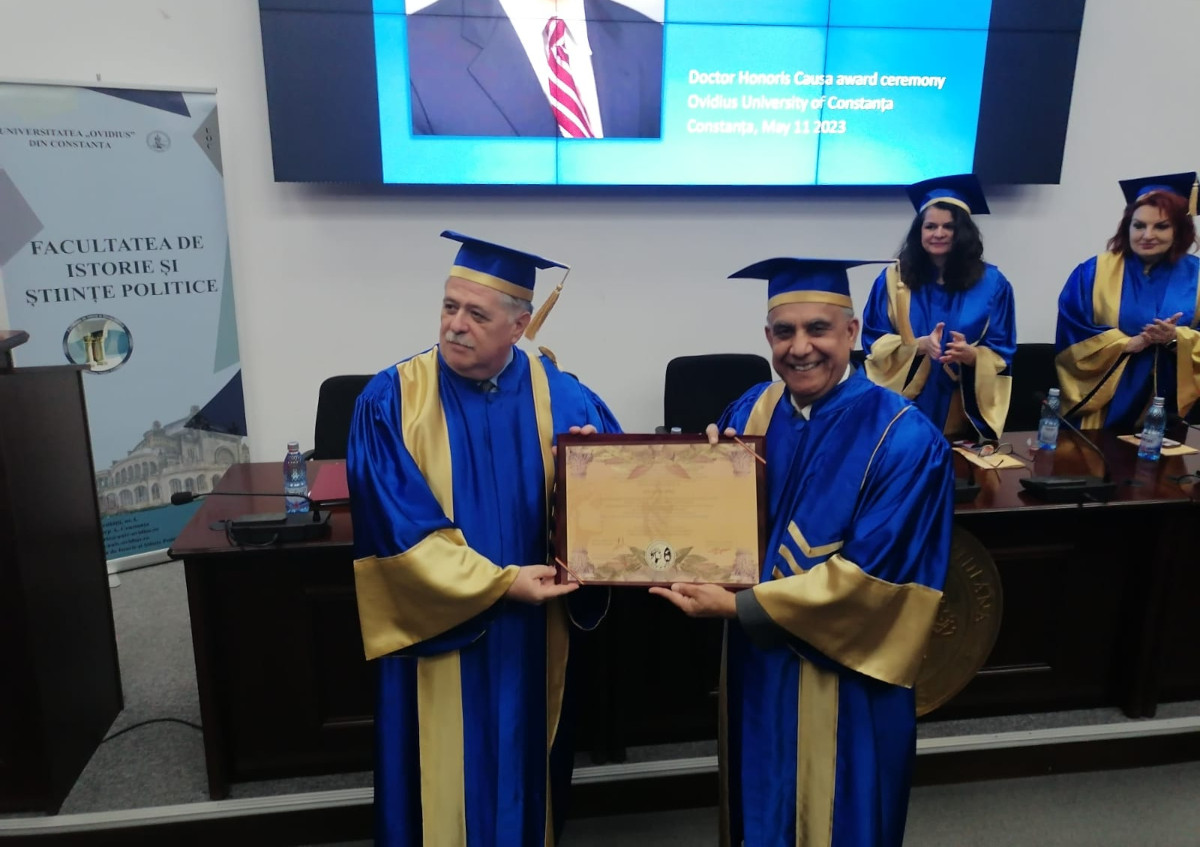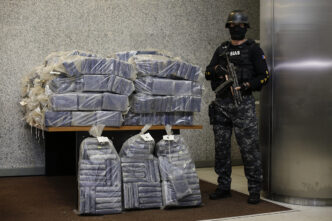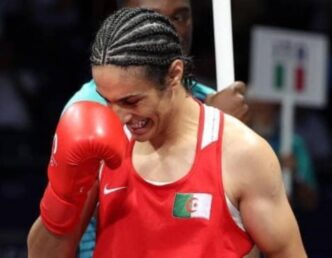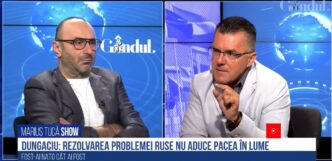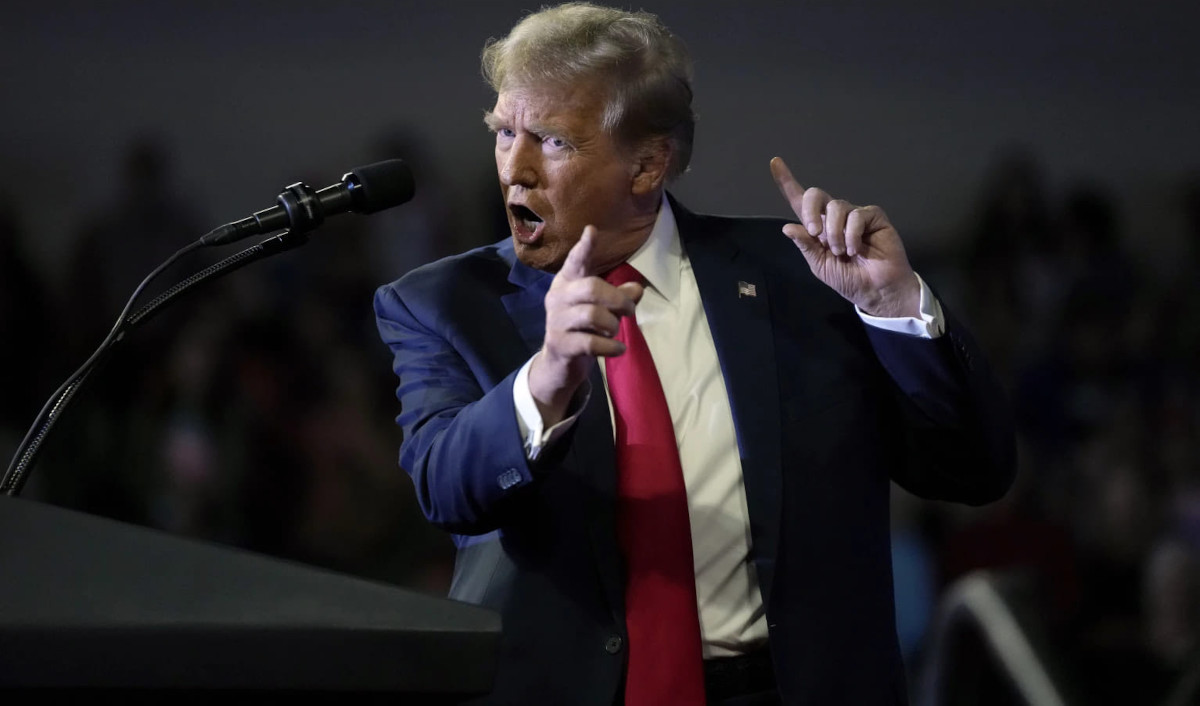
Asif J. Chaudhry, former U.S. Ambassador to the Republic of Moldova and current Vice President of the Office of International Programs at Washington State University, received on Thursday the title “Doctor Honoris Causa” of Ovidius University in Constanța and used the occasion to tell his story and encourage Romania to support Moldova’s European accession, even through unification if possible.
- “Always remember: Whatever you do, whether you are a diplomat, an academic or anything else in life: Are you making someone’s life better? That’s what I’ve always focused on in any project, any diplomatic or other activity. I looked to see if it affects someone in a positive way. That’s it!”, is the message that should stick in the mind of anyone looking back on his career, he told Info Sud-Est.
With a long career in diplomacy that took him over time to countries such as Poland, Russia and Egypt before arriving in Moldova, the former ambassador’s story began, as many examples of the “American dream” begin, far from US borders – in this case in the village of Nindowal in the Pakistani state of Punjab.
- “We appreciate Dr Asif Chaudhry’s outstanding contributions in promoting democratic values, prosperity and freedom regionally and globally, but especially in Eastern Europe. We note that his work has always been guided by the values that Ovidius University promotes, that he is a worthy example for future generations of students to follow and that he is a persistent and dedicated campaigner for the development of collaboration between the two higher education institutions”, is the explanation given by Dr. Emanuel Plopeanu, Dean of the Faculty of History and Political Science of the UOC, whose faculty council proposed the award of this honorary title to Mr. Asif Chaudhry.

Despite having significant emotions, which he did not shy away from mentioning, the former diplomat gave his “first lecture” in Constanța, as he jokingly described it, and during a speech lasting almost an hour he presented his inspirational and at times moving story.
He made a point of reminding us that humble origins are not an obstacle that cannot be overcome. Before earning a PhD in Agricultural Economics from Washington State University or beginning his vast diplomatic career, he was a simple man, raised in a small village almost frozen in time, which he says hasn’t changed much even today.
He talks with nostalgia and a touch of humour about his pre-American days. As a master’s student at the American University of Beirut, he could go to a food vendor once a week and tell him: “Hamburger, my man! Today I want a burger and a fried egg,” the greatest culinary luxury he could afford at the time.

Perhaps because of this background, Asif Chaudhry wanted to make sure people all over the world had something to eat. In the 1990s, he was an agricultural affairs adviser at the US Embassy in Moscow, and from this not-so-top diplomatic position, he proposed and supported a unique $1.3 billion programme to alleviate the effects of the 1998 financial crisis on the Russian population. The programme was accepted, and its implementation saved many people from starvation, which he proudly describes:
- “It didn’t matter that Russia was the adversary at the time. It was all purely human, and it was from the heart, because that’s natural, that’s how I was brought up. It’s about connections, when someone is in need, it doesn’t matter who you are.”

Among his other accomplishments was helping to establish the food trade agreement between the US and South Korean governments.
These accomplishments, among others, his knowledge of Russian and his diplomatic experience in Eastern Europe led to his appointment as US ambassador to Chișinău, a position he served in from 2008 to 2011 . Dr Chaudhry spoke fondly of his years in Moldova, but also regretted that he could not convince the United States to invest more in it.
Unfortunately, no speech is complete without mentioning Russia’s aggression in Ukraine, but the diplomat put the issue in a slightly different perspective and emphasised the role Romania can play in this period. He mentioned first of all Romania’s growing importance internationally due to its strategic position on the Black Sea, as well as its infrastructure and political will in the country.
Moreover, he expressed the hope that Romania will continue to support Moldova’s path towards European integration. He even went so far as to mention a possible union between Romania and Moldova, a bold idea that he admits he can only bring into the discussion because he no longer holds an official position as a diplomat.
- “In my mind there are two options, both include Romania. Now that I am not a diplomat, I will speak freely about it: One option may be, help them, as Romania has been doing, be leaders in making sure that Moldova is integrated into the European Union as quickly and seamlessly as possible. But there is a second option, and that is: There are many people in Moldova and I’m sure there are many people in Romania who would say <<Let’s go back the pre-World War 2>>. It is an option! If the people, the leadership and the thinkers say <You know what, let’s merge!>, there is a way. It’s not my place to say today exactly what the steps would be, but you have to have bold ideas. I believe in bold ideas”.
Asif J. Chaudhry concluded his lecture by reiterating the importance of the Black Sea region and the cooperation between his university and the UOC.

Ne bucurăm că ne citești!
Dacă vrei să ne și susții:
